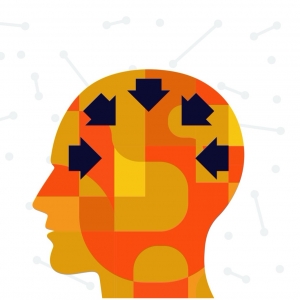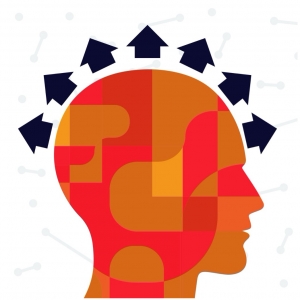Much of the leadership development available has self-awareness as its base, and rightly so. It is a critical foundation stone.
In fact, whether you’re a leader or not, developing better self-awareness is a strong foundation for improved outcomes in a range of things including: confidence, creativity, decisions, communication, and relationships, as well as effectiveness and satisfaction at work.
We all tend to think we have relatively good self-awareness.
However, research involving over 5,000 participants found that very few of us actually do, with the estimate that only 10-15% of those studied actually fit the criteria (Dr. Tasha Eurich, Harvard Business Review).
This becomes problematic when issues arise with other people and we think things will improve when ‘they’ stop being so rigid.
(Ironically, those who insist they must be part of the 10-15% who do fit the self-awareness criteria and/ or those who aren’t open and curious about another’s perspective generally fail to see their own lack of awareness.)
Two different types of self-awareness
One key finding from the research noted above was that there are two different types of self-awareness: internal self-awareness and external self-awareness.
Internal self-awareness
This is how clearly we know our values, passions, aspirations, fit with our environment, reactions (including thoughts, feelings, behaviors, strengths, and weaknesses), and impact on others.
When this was high, it was associated with:
- high job and relationship satisfaction
- high personal and social control, and
- high happiness; and with
- lower levels of anxiety, stress, and depression.
External self-awareness
This is really about understanding how other people see us, in relation to our values, passions, aspirations, etc. (as listed above).
When external self-awareness is high, then:
- the individual is more skilled at showing empathy and seeing others’ views,
- resulting in better relationships and higher effectiveness.
Mapping the two types
This image* maps how well you know yourself (internal self-awareness) against your understanding of how others see you (external self-awareness).
A high level of one type of awareness doesn’t imply you have a high level in the other and sometimes we need to develop either one, or both.
*taken directly from the the HBR article by Dr. Tasha Eurich
There‘s never just one ’truth’
A critical point to remember is that there isn’t just one truth regarding your self-awareness.
The author notes that “..It’s a delicate balance of two distinct, even competing, viewpoints.”
So, there’s a need to be open to both, to seek both, and to find a balance that works for you and those with whom you interact.
Some possible actions
- Undertake self-assessments (e.g., DISC, Myers-Briggs Type Inventory, etc.).
- Reflect on some recent situations and your behaviour, thoughts, feelings and actions. What happened, what did you think and feel, what did you do? How did that play out? What might you do differently next time?
- Complete a Values activity to clarify what you stand for. (I have a Values activity to share if you’re interested, so email me back and I will send to you).
- Seek feedback from others. This could be formally (e.g., through a performance review process) or informally (e.g., asking someone at the start of a meeting to observe and provide feedback at the end on a specific behaviour).
- If you haven’t done this before and/or think others may feel reticent to be truly open and honest in their feedback, then ask an independent or neutral person to seek that feedback on your behalf.
In addition, when you ask others for their feedback, there is an implied expectation that the feedback will be heard (it’s useful to express acknowledgement and gratitude) and that you will do something with that feedback.
“Good” self-awareness comprises knowledge (and preferably some understanding) of a wide range of our behaviours, thoughts, feelings and actions.
It is knowledge and understanding of our strengths as well as things we don’t do so well.
It’s most useful when we have that awareness in-the-moment.
When coupled with openness, curiosity, and an intent to learn and change, our development can accelerate
and we can potentially enable better relationships, decisions, and outcomes.
Feedback is just one source of information about us and how we present in the world;
it is not necessarily the most important nor the only source.
Look at that feedback in the context of the other information at hand.







